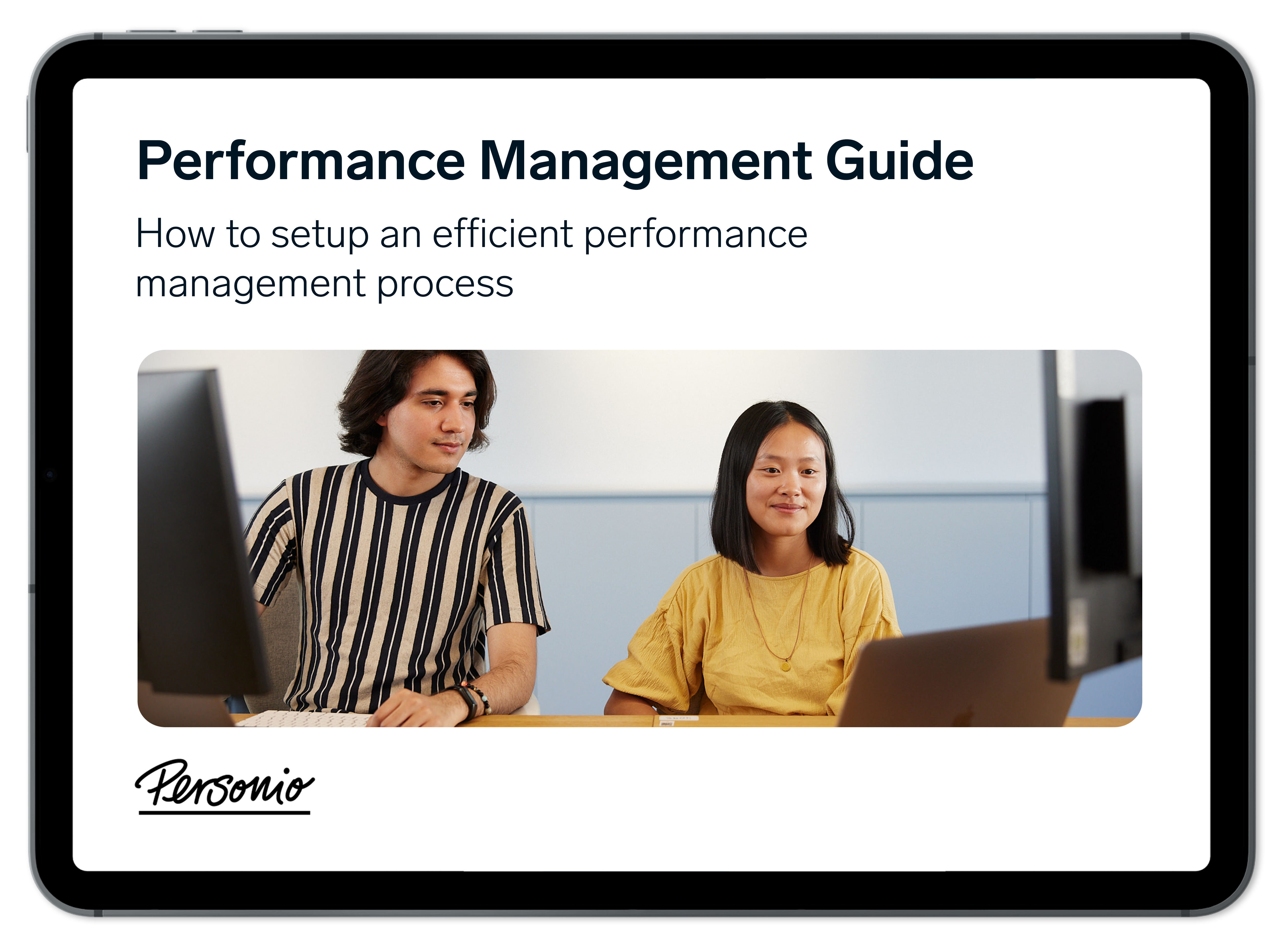Referral Bonus: Incentivising Success in the Workplace

As the UK labour market heats up, companies need to find creative ways to attract talent. Referral bonuses are one such tactic you can implement, utilising your employees’ personal and professional networks to find qualified candidates. Below is a comprehensive overview of a typical referral programme and tips on making it as successful as possible.
Key Facts
Bonuses incentivise employees to take advantage of a referral programme.
Cash rewards are common, but there are other reward options that could better fit your company.
An effective referral programme can help find people for more complex positions within your business.
Contents
- 1Referral Bonus and Referral Rewards Explained
- 2What Are the Benefits and Disadvantages of a Referral Bonus?
- 3Referred Candidates: Who Should Be Recommended?
- 4What Are the Different Types of Referral Bonuses?
- 54 Steps To Create the Best Fitting Referral Programme
- 6Frequently Asked Questions About Referral Bonuses
- 7Can a Referral Programme Support Your Recruitment Efforts?
Referral Bonus and Referral Rewards Explained
While it’s not a complex concept, a full understanding of what a referral programme usually entails helps ensure it’s implemented correctly.
What Is a Referral Reward?
A referral reward is a financial or material incentive offered to employees or customers who direct qualified candidates to apply for a vacant position at your company.
How Does the Referral Programme Work?
Through a referral programme, employees are encouraged to recommend qualified candidates in their network. If the applicant gets the job, the referring employee receives the bonus, whether in the form of cash, stock or similar rewards. In some cases, the referral bonus is paid right away; in other cases, the new employee must stay for a prescribed period before the referral bonus is paid out.
While referral programmes help with recruitment, they’re technically a part of your marketing strategy. Companies use incentives to encourage their employees to spread awareness of your company to their friends and family. Ideally, the people they tell about it either apply directly or pass on the information to others interested in the vacant position. This not only makes a referral programme an effective recruitment tactic but a good promotional tool as well.
Recommended reading: Find out more about the signing bonus and its advantages.
What Are the Benefits and Disadvantages of a Referral Bonus?
Implementing a referral programme has notable benefits for your company but can come with several disadvantages that are important to keep in mind.
Benefits
Save Time and Money. Sourcing potential candidates for a vacant position is often a resource-intensive process. A referral programme can help cut down on time spent scouring CVs by steering you directly to a qualified candidate. Additionally, your employees understand the company culture, so it’s more likely that they recommend people who’d fit the work environment.
Find Quality Employees More Easily. Generally, employees refer friends or family that help make their work lives easier. As a result, you can have more confidence that a referral candidate has the qualifications needed for the vacant role.
Improve Retention Rates. Candidates recommended by current employees are more likely to remain in their positions for the long term. For one, referrals have a built-in support network with the employee who recommended them, which can motivate them to stay on board.
Drawbacks
Biassed Recommendations. While many employees will recommend people who fit the company, there’s a possibility for less honest referrals. Sometimes employees put forward someone because they want to spend time with them in the workplace, not because they fit the role. Other times, the referrer recommends someone randomly because they’re more interested in the incentive offered.
Negative Reaction from Peers. While referrals are more likely to boost overall morale, negative feelings can emerge within the workforce due to your choice. Since referrals are incentivised with monetary rewards or in-office perks, one employee’s recommendation getting picked over another’s can cause friction. Those same negative feelings can arise if your company hires someone for a vacant position rather than promote them internally.
Risk of Losing Two Employees Instead of One. Because a friendly dynamic likely already exists between the employee and the person they recommend, if one ends up leaving, the other might follow. If someone is hired based on a referral, it’s important to build a connection between them and the company as quickly as possible. Otherwise, you risk losing twice as much as you gained.
Retain Employees From Day 1 – With Your Employer Brand

Show candidates and employees how attractive you are as an employer. What you need is a strong employer brand. This guide shows you how to achieve that.
Download the Guide HereReferred Candidates: Who Should Be Recommended?
Clearly outlining your referral expectations at the programme’s start can help you avoid biassed or low-quality recommendations. The requirements can differ from company to company, but there are baseline expectations you can use to shape your referral programme.
For example, most organisations want their employees to refer candidates with at least the minimum qualifications for a vacant position. That means having relevant professional experience, specific skills and a certain level of education.
Another consideration is the referral candidate’s interest in the position. An applicant that doesn’t show enthusiasm for the role and the company is at higher risk of leaving if they get the job. For similar reasons, they should also have values that mesh well with the company culture.
Another common requirement for recommended candidates is a lack of prior contact with the company. Rehiring someone based on a referral risks a quick departure because of the same reasons they left the first time. That may not be the case for every returning employee, but it’s best to handle their applications through your standard hiring process.
What Are the Different Types of Referral Bonuses?
Cash rewards are common because it's easy for employers to adjust the amount given depending on the complexity of the vacant position. But there are several incentives businesses will offer their employees in return for a quality referral, such as:
Social Bonuses. An employee is rewarded with public recognition for a successful referral. Their contribution might be recognised on the organisation’s social media, or they might receive praise from the CEO for finding a suitable candidate.
Altruistic Bonuses. Rather than giving a reward directly to the employee, the employer donates a bonus to a charity or humanitarian organisation of their choice. This is effective for staff members that place a higher value on community initiatives rather than personal gain.
Tiered Bonuses. Employees are given smaller rewards for every stage of the recruitment process their referral makes it through, receiving a larger one if the referred is hired. Some companies will reward both the referrer and the referred while giving further bonuses if the candidate remains with the company for three to six months.
Raffle Bonuses. If an employee offers a quality referral, their name is placed in a raffle for the chance to win various prizes. Typically, their name is entered into the raffle again for each candidate the employee puts forward, and the employer will draw lots at a time of their choosing.
Prize Bonuses. Employees receive valuable prizes for a quality candidate recommendation rather than a cash prize. For the best results, the reward is usually something most people would want, like a restaurant gift card or popular technology like high-end headphones or a tablet.
Vacation Bonuses. Employees are rewarded with the resources to enjoy themselves in ways they might not otherwise be able to. You could provide an all-expense paid trip overseas, monetary assistance to afford travel costs or extra vacation days.
Custom Bonuses. The company lets employees pick the rewards they want after a successful referral. These are typically limited to what the company can reasonably provide, and workers will need to clear their prizes with HR beforehand.
Easily Track Your Most Successful Recruiting Channels

Create application forms in a flash and let candidates enter through which channel they became aware of you. Analyse this data in Personio and optimize your recruiting accordingly.
Learn more here4 Steps To Create the Best Fitting Referral Programme
There are several steps to observe if you’d like to implement a referral programme into your business. Following them can help you build a programme that fits your company and produces the best results possible.
1. Identify Your Priorities
Referral programmes are useful but can cost more resources than necessary without motivation behind it. A clear understanding of your hiring needs can help determine your expectations for candidate recommendations from your staff. For example, if you want to fill a job vacancy quickly, you might use referrals as part of your standard recruitment process. Or, you may open a referral programme when a senior position opens up, and people with the right specifications are hard to come by.
2. Make the Referral Process Simple
Once you’ve set your programme’s goals, it’s time to develop the referral process itself. It’s vital that the referral system is as user-friendly and fast as possible, so employees are motivated to engage with it. If they have to submit stacks of documentation for each candidate they put forward, you’re not likely to receive the best results.
One of the best ways to streamline your recommendation system is by using referral programme software. With it, you can send out referral emails to your employees that they can further share with their personal network or on their social media accounts.
3. Establish a Reward System
How you incentivise recommendations is a vital part of your referral programme that largely determines its success. Many companies use cash rewards to encourage employees to interact with the programme because it tends to be the most effective. But just because financial incentives work for most companies doesn’t necessarily mean it will work for yours. Finding a prize that your employees are interested in is just as important as offering one in the first place.
4. Measure Success
Track the impact your referral programme has on your recruitment efforts over time. Your benchmark for success would be the number of qualified candidates it can bring in. Keeping a careful eye on your programme, especially in the initial stages, can help determine if it’s right for your company. Additionally, it can highlight weaknesses within the process that might be hindering its success.
Frequently Asked Questions About Referral Bonuses
What Is a Referral Reward?
A referral reward is an incentive the company provides to employees that recommend qualified candidates for an open position.
What Is the Average Referral Bonus Payout?
The amount tends to differ from business to business, but the average payout is usually around £700.
How Are Referral Bonuses Paid Out?
One portion of referral bonuses is typically paid out on the referred candidates’ first day, while another portion is rewarded after they’ve worked for the company for a few months. There are several structures, though, and you may find that a different structure works better for your organisation.
Can a Referral Programme Support Your Recruitment Efforts?
While referral programmes might only see rare use in finding people for entry-level positions, the more complex a vacant role is, the more useful such programmes become. While implementing an effective system will take some trial and error, it could be just the edge your company needs to attract the best applicants. Take stock of your organisation and determine if your employee referral is right for you.
Disclaimer
We would like to inform you that the contents of our website (including any legal contributions) are for non-binding informational purposes only and does not in any way constitute legal advice. The content of this information cannot and is not intended to replace individual and binding legal advice from e.g. a lawyer that addresses your specific situation. In this respect, all information provided is without guarantee of correctness, completeness and up-to-dateness.

